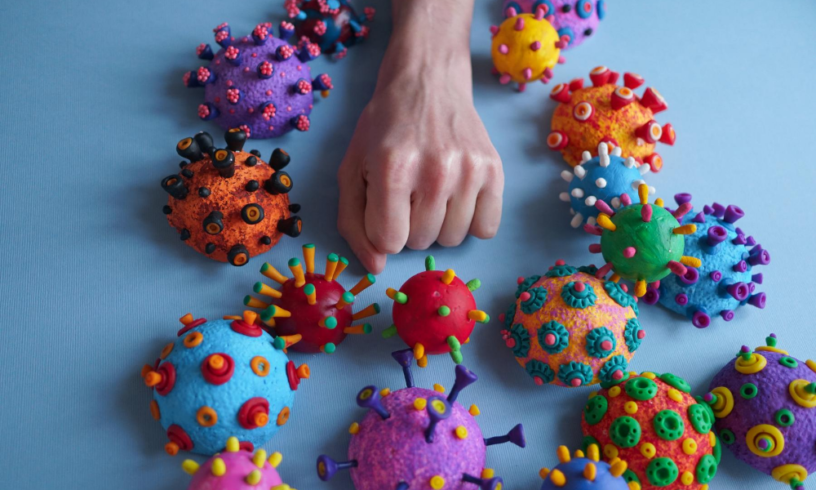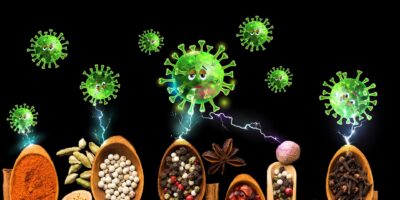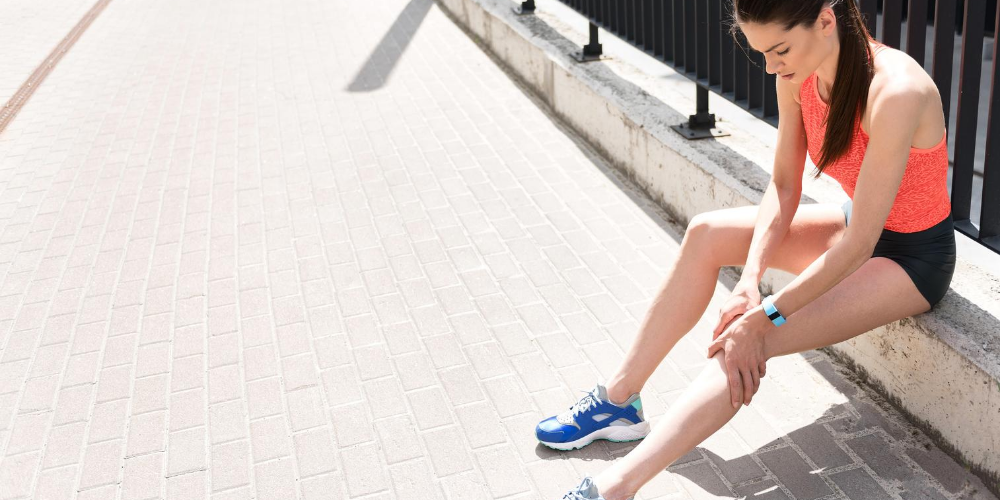Microorganisms are everywhere—in the air, soil, and water. Humans are like small planets colonized by billions of bacteria and fungi. But if they’re everywhere, why aren’t we sick all the time? You guessed it: the immune system. This complex association of organs, cells, and molecules protect us from anything foreign and potentially harmful: “bad” microbes, cancer cells, splinters, toxic chemicals. Certain people have more trouble maintaining a healthy immune system than others. Elderly people often have diminished immune defense. Undue stress, sleep deprivation, a diet of processed foods high in sugar and fat, social isolation, and inactivity undermine general health and the immune system. Fortunately, a host of simple lifestyle choices and a few nutritional supplements can ironclad your immune system. The key among them is taking care of yourself.


1. Harvest Colors Veggie Roast
How it works: Plants contain a number of molecules that promote our immune function. Examples include the carotenoids and flavonoids that give fruits and vegetables their beautiful colors and act as antioxidants and anti-inflammatory agents. That’s important because as the immune system goes about its business of dispatching microbes, it stirs up inflammation and oxidation. Furthermore, carotenoids directly contribute to immune function.
- PREPARATION:
- 1 sweet potato or yam, sliced into chunks
- 2 carrots, sliced into chunks
- 2 red, yellow, or orange bell peppers, seeded and sliced into chunks
- 1 tablespoon (15 ml) olive oil
- DIRECTIONS: Preheat the oven to 400°F (200°C, or gas mark 6). Combine the vegetables and spread them across a baking sheet. Brush with olive oil on each side. Roast for 25 minutes, flipping halfway through, and serve.
- YIELD: 2 TO 4 SERVING
2. Pumpkin Pleasure Soup
How it works: Pumpkin is rich in carotenoids, which neutralize free radicals and support immune health. Our bodies convert some of these carotenoids to vitamin A, which is also critical for proper immune function. Many spices are antibacterial, including cinnamon, nutmeg, and allspice.
- PREPARATION:
- 3½ cups (406 g) fresh pumpkin, or 2 cans (15 ounces, or 528 g) pure pumpkin purée (if pumpkin is not in season)
- Enough water to just cover the fresh pumpkin, if used
- 2½ cups (570 ml) low-fat coconut milk
- 1 teaspoon (6 g) salt
- ½ teaspoon ground nutmeg
- ½ teaspoon ground allspice
- Freshly ground black pepper
- 2 tablespoons (30 g) brown sugar (optional)
- DIRECTIONS:
Cut the pumpkin into chunks and place it in a large pan. Barely cover the pumpkin with water. Bring to a boil. Lower the heat and simmer for about 20 minutes. Puree the pumpkin, using a stand or immersion blender, and keep it warm. (Alternatively, place the canned pumpkin in a large pan without water and heat.)
Stir in the coconut milk, salt, nutmeg, allspice, and pepper to taste. Serve warm.
- YIELD: ABOUT 4 SERVINGS
3. Feel Better Fruit Salad
How it works: Antioxidant carotenoids and flavonoids create the colors in fruits and vegetables. When eaten fresh, they also provide vitamin C, which also benefits the immune system.
- PREPARATION:
- ½ cup (80 g) cantaloupe chunks
- 1 apricot, cut into chunks
- ½ cup (83 g) guava chunks
- ½ cup (70 g) papaya chunks
- 1 ripe persimmon, peeled, seeded, and cut into chunks (see note)
- Ground cinnamon
- DIRECTIONS: Antioxidant carotenoids and flavonoids create the colors in fruits and vegetables. When eaten fresh, they also provide vitamin C, which also benefits the immune system.
- YIELD: 4 TO 6 SERVINGS
4. Medicinal Mushroom Sauté
How it works: Maitake mushrooms, along with shiitake, are among the top medicinal mushrooms. Shiitake has antiviral, anticancer molecules called interferons. Studies show complex polysaccharides from the maitake mushroom enhance immune function and also have anti-cancer effects.
- PREPARATION:
- 1½ teaspoons (8 ml) olive oil
- 2 teaspoons (10 g) butter
- 1½ teaspoons (8 ml) balsamic vinegar
- 1 pound (455 g) fresh maitake mushrooms
- 1 garlic clove, minced
- DIRECTIONS:
Place the oil and butter in a large skillet and melt over medium heat.
Stir in balsamic vinegar. Add the mushrooms. Sauté for about 15 minutes or until tender.
Add the garlic at the end of the cooking time and sauté for about a minute: active ingredients in garlic do not survive prolonged cooking. Sprinkle the mushrooms over a bed of wilted spinach for a delicious salad, fold them into an omelet, or enjoy them alone, as a side dish.
- RECIPE VARIATION: Substitute shiitake mushrooms for maitake mushrooms, which are harder to find fresh, or make a mix. If you use dried mushrooms, 3 ounces (85 g, about ¹∕3 cups) will substitute for a pound (455 g) of fresh. First, reconstitute by soaking in boiling-hot water for 20 minutes (save the water for soup stock).
- YIELD: 4 TO 6 SERVINGS
5. Holy Mackerel
How it works: Mackerel is a good source of vitamin D, which supports immune function. Mackerel, as well as sardines, salmon, oysters, and tuna, are also kings of omega-3 fatty acids, which help reduce inflammation.
- PREPARATION:
- 4 Spanish mackerel fillets
- 2 tablespoons (30 ml) olive oil
- Salt and freshly ground black pepper
- ¼ teaspoon paprika
- 8 slices lemon
- DIRECTIONS:
Preheat the broiler. Use vegetable cooking spray to grease a baking dish.
Rub the tops of the fillets with olive oil. Place skin side down in a baking dish. Sprinkle with salt, pepper, and paprika. Broil for about 7 minutes until the fish begins to flake. Serve with lemon slices.
- YIELD: 4 SERVINGS
6. Nut Pick-Me-Up
How it works: Peanuts, almonds, and sunflower seeds are rich in zinc and vitamin E. The immune system needs vitamin E as an antioxidant and to manufacture important regulatory molecules. Low zinc intake impairs immune function. If you take supplements, take care not to overdo it. The recommended intake is 11 milligrams for men and 8 milligrams for women (11 milligrams for pregnant women). Too much zinc from supplements can cause problems. But you can’t go wrong with eating zinc-rich foods, including oysters, crab, wheat germ, and pumpkin and squash seeds.
- PREPARATION:
- ½ cup (75 g) unsalted peanuts
- ½ cup (73 g) unsalted almonds
- ¼ cup unsalted (36 g) sunflower seeds
- 1 teaspoon (5 ml) olive oil
- 1 teaspoon (6 g) sea salt
- DIRECTIONS: Preheat the oven to 350°F (180°C, or gas mark 4). Mix the nuts with olive oil. Spread across a baking sheet. Bake for about 10 minutes. Remove from the oven and sprinkle with salt. Let cool for an hour before serving. Pop a handful into your mouth.
- YIELD: FIVE ¼-CUP (38 G) SERVINGS
7. Simply (Probiotic) Sauerkraut
How it works: Probiotics are live microorganisms similar to those that normally colonize mucous membranes—the slippery linings in the respiratory system, digestive system, and vagina. We ingest them in fermented foods and as supplements. Some probiotic strains strengthen the immune system and may even protect against respiratory infections. The sauerkraut you buy in stores is usually pasteurized, which kills the good (while also killing the bad) bacteria.
- PREPARATION:
- 1 head cabbage, shredded
- 1 teaspoon (6 g) sea salt
- Vinegar
- DIRECTIONS: Toss together the cabbage and salt in a bowl. Knead the salted cabbage until the water is extracted and the cabbage becomes limp. Pack the mixture into a mason jar so that no air bubbles remain and it is submerged in liquid. Cover and leave at room temperature for one to three weeks until it is sour to the taste. Transfer to the refrigerator. To each serving, add a few drops of vinegar for extra flavor.
- YIELD: 4 SERVINGS
- NOTE: The key to fermenting correctly is to keep the solid cabbage well below the liquid, so pack cabbage firmly, with liquid on top, and don’t expose it directly to air while it ferments.
8. Foot Massage
How it works: Several studies have shown immune benefits from foot reflexology treatments. In reflexology, the feet and hands are thought to contain regions that correspond to specific organs and other body parts. In theory, applying firm pressure to representative areas helps heal illness in the body.
- PREPARATION:
- 2 teaspoons (10 ml) lotion or oil (almond, olive, grapeseed, or apricot)
- 2 drops peppermint or lavender essential oils
- DIRECTIONS: Sit in a comfortable position. Draw one foot toward you or onto your lap. Apply a teaspoon (5 ml) of lotion or oil to your palm. Using firm pressure, massage into your feet. If you’re feeling tired, blend one or two drops of peppermint essential oil into the lotion or oil. If you’re getting ready for bed, use lavender oil instead.
- YIELD: 1 APPLICATION
9. Circulation-Boosting Salt Scrub
How it works: Massaging in salt and essential oils increases blood circulation. Warm water dilates blood vessels (making you look pink). The quick burst of cold water at the end constricts blood vessels. The total effect is immediate invigoration, cleansing, and ultimate relaxation.
- PREPARATION:
- 1 cup (240 g) sea salt (avoid regular table salt, which is harsh on the skin)
- ½ cup (120 ml) olive oil
- 5 drops peppermint oil
- DIRECTIONS:
Put the salt in a small bowl. Mix in the olive oil so that the mixture is moist and holds together but is not overly oily. Drop in the peppermint oil, blending with each drop.
Soften your skin by soaking in a tub for 10 minutes. Drain the tub, pat yourself dry, and sit on the side of the tub. Apply a small amount of the scrub to each leg. With a warm, moist washcloth, slowly scrub each leg, not rubbing too hard and moving upward, toward your heart. Repeat with your arms and torso, always toward your heart. Rinse off in a warm shower. Finish with a burst of cold water.
- YIELD: 3 TO 4 APPLICATIONS
- NOTE: The oil creates a slippery surface, so step carefully.
Fact or Myth?
- KEEPING YOUR VACCINATIONS UP TO DATE IS VITAL. Fact. Vaccines prevent illness by exposing you to the microbe or fragments of it— inactivated or weakened so that you don’t get sick. Your immune system “learns” that microbe. So when you’re exposed to the actual microbe, later on, you don’t get sick.
- IF MODERATE REGULAR EXERCISE IS KEY TO ENHANCING THE IMMUNE FUNCTION, HEAVY EXERCISE MUST BE EVEN BETTER. Myth. Extreme amounts of exercise tax your immune system.
- DIRECT SUN BOOSTS YOUR IMMUNE SYSTEM. Fact. Especially if it’s sometime between about April and October, your exposed, unsunscreened skin makes vitamin D, which promotes immune function. If you’re in a bathing suit, limit your exposure time to 10 minutes if you’re light-skinned, 20 minutes if you’re dark-skinned. Keep your hat on to protect your skin from the aging effects of ultraviolet light. After your brief sunbath, cover-up, seek shade or slather on sunscreen to protect against skin cancer.
Lifestyle Tip
- Eat yogurt. Like other probiotics, yogurt contributes to a healthy population of intestinal bacteria. Make sure the yogurt has live and active cultures containing bifidobacteria or lactobacilli or both.
- Hug a tree. Studies show that spending time in forested areas increases certain immune markers. Some of the effects may be due to relaxation and some from the aroma of essential oils from such plants as coniferous (e.g., pine), eucalyptus, and bay trees.
- Eat an orange. Citrus fruits are high in vitamin c and flavonoids. Your immune system needs vitamin c, which acts as an antioxidant and also produces an antiviral, anticancer molecule called interferon. In traditional Chinese medicine, oranges are recommended for managing indigestion and coughs. in recent years, studies conflict as to whether vitamin c prevents the common cold. Still, it never hurts to eat fresh fruits and vegetables containing vitamin c and other important nutrients. Vitamin c is not very stable, so eat vitamin C-rich foods raw. Other food sources include kiwifruit, guavas, papayas, peppers, strawberries, cantaloupe, fresh thyme or parsley, tender fresh kale, fresh broccoli, red cabbage, and peppers.
- Wash your hands. It sounds simple, but a number of people skip this basic hygiene maneuver. The American Society for Microbiology, which conducts periodic observational surveys in public restrooms, reports that, in 2011, 17 percent of women and 23 percent of men didn’t wash their hands. Plain soap and water or alcohol-based hand sanitizers reduce the transmission of most microbes. One study found that alcohol-based hand sanitizers are better than soap and water in removing cold viruses. Antibacterial soaps and gels are unnecessary, foster antibiotic-resistant bacteria, and harm the environment.
- Laugh more. Watch funny videos. go to the comedy show. Play with children. Yuck it up with friends. Positive emotions such as happiness generally correlate with more robust immune system function.






Leave a Reply